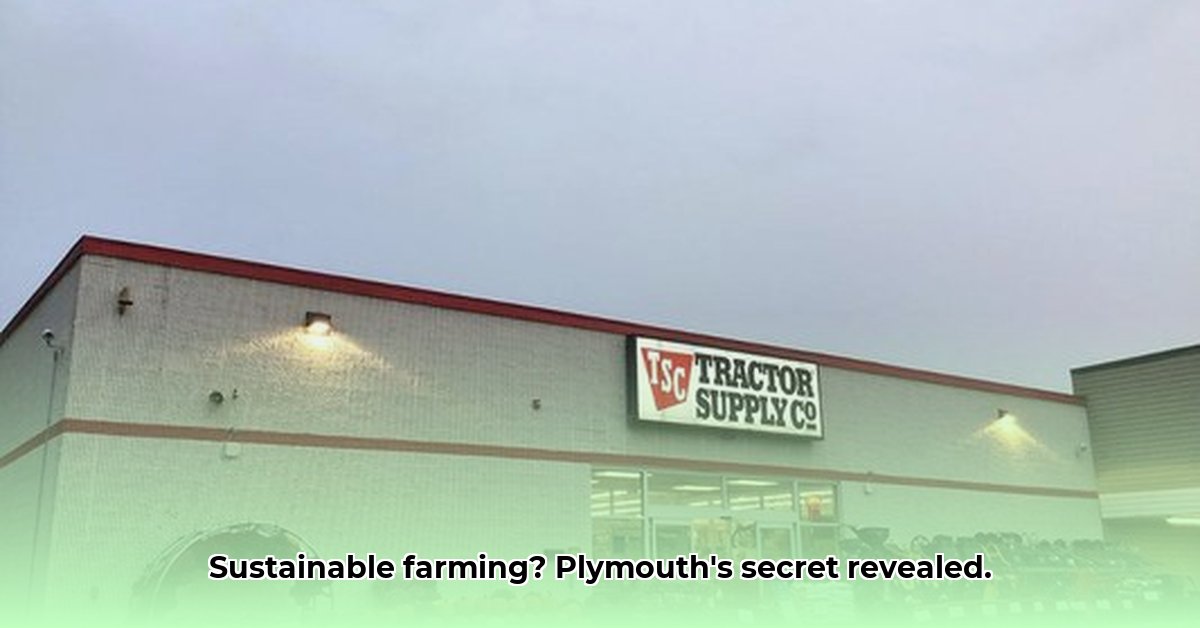
Is Tractor Supply a Partner in Sustainable Agriculture?
Tractor Supply Company (TSC) in Plymouth, New Hampshire, occupies a significant position within the local farming community, supplying essential goods and services. For more information on a nearby TSC, check out this Milford, NH location. However, the extent to which it actively promotes sustainable agricultural practices remains a crucial question. While TSC offers products that can contribute to sustainable farming, a comprehensive evaluation requires a closer examination of its operations and community impact. This investigative piece explores the available information, identifies significant knowledge gaps, and proposes actionable steps towards greater transparency and sustainability within the Plymouth farming community.
Assessing TSC's Contribution: What We Know and Don't Know
TSC's product catalog includes items directly relevant to sustainable farming: organic seeds, eco-friendly fertilizers, and tools for water conservation. This suggests a potential commitment to supporting sustainable practices. However, crucial information regarding the company's overall environmental impact remains unavailable to the public. Questions about the sourcing of its products, waste management strategies, and community engagement initiatives remain unanswered. Does Tractor Supply prioritize sustainably sourced products? What is their waste reduction rate? Do they actively partner with local organizations promoting environmentally friendly farming? These are key questions lacking readily available answers. The absence of readily available data hinders a proper assessment of their true impact on sustainable agriculture in Plymouth.
Uncovering the Truth: A Framework for Investigation
To obtain a clear understanding of TSC's role in sustainable agriculture, a multi-pronged investigation is required. This research needs to focus on several key areas:
Product Sourcing and Traceability: A thorough investigation into the origin and sustainability certifications of TSC's products is essential. Are their organic products certified as such? What are their sourcing practices concerning eco-friendly fertilizers and pest control options? How do their practices compare to competitors? This analysis would reveal the transparency of their supply chain and the genuine commitment to sustainable sourcing.
Waste Management and Reduction Strategies: Evaluation of TSC's waste management practices, including recycling rates and waste reduction initiatives, is crucial. What is the volume of waste generated by the Plymouth store? What specific steps are taken to minimize waste throughout their supply chain? A comparison to industry best practices would provide valuable context. An assessment of their waste management practices would reveal their commitment to environmental responsibility.
Community Engagement and Educational Initiatives: Determining the level of TSC's engagement with the local community in promoting sustainable farming is crucial. Do they participate in workshops or educational events on sustainable agriculture? Do they support local organizations focused on environmental stewardship? A detailed examination of their community involvement would highlight the extent of their commitment to local sustainability.
A Call to Action: Promoting Transparency and Sustainability
The goal here isn't to criticize TSC but to foster a more sustainable future for farming in Plymouth. Transparency is paramount. Several actors need to take responsibility:
Tractor Supply's Role: TSC must conduct a comprehensive sustainability audit and publicly release the findings. This report should detail their specific sustainability goals, measurable outcomes, and strategies towards achieving them. Transparency builds trust and demonstrates a genuine commitment to improving their environmental performance.
Farmer Collaboration: Local farmers should engage directly with TSC, encouraging the adoption of more sustainable practices and advocating for greater transparency. Their feedback and participation are essential in shaping TSC's sustainability strategy.
Community Engagement: The Plymouth community can demand increased transparency from TSC. Supporting local organizations promoting sustainable agriculture amplifies the community's call for change.
Independent Research: Academic researchers and independent organizations should conduct unbiased assessments of TSC's impact on sustainable agriculture in the Plymouth area. Studies based on factual data will provide vital insights into the effectiveness of their sustainability efforts.
The Path Forward: Continued Research and Collaboration
This investigation highlights the need for ongoing research and sustained collaboration. While this article presents a preliminary analysis, a complete understanding of TSC's role in sustainable agriculture requires further data collection and analysis. By working together, we can create a more sustainable future for farming in New Hampshire.
Key Takeaways:
- TSC's product offerings show potential for supporting sustainable farming, but comprehensive data is lacking.
- Further investigation into sourcing, waste management, and community engagement is needed.
- Increased transparency from TSC regarding its sustainability practices is crucial.
- Collaboration among TSC, farmers, the community, and researchers is necessary to fostering sustainable agricultural practices.